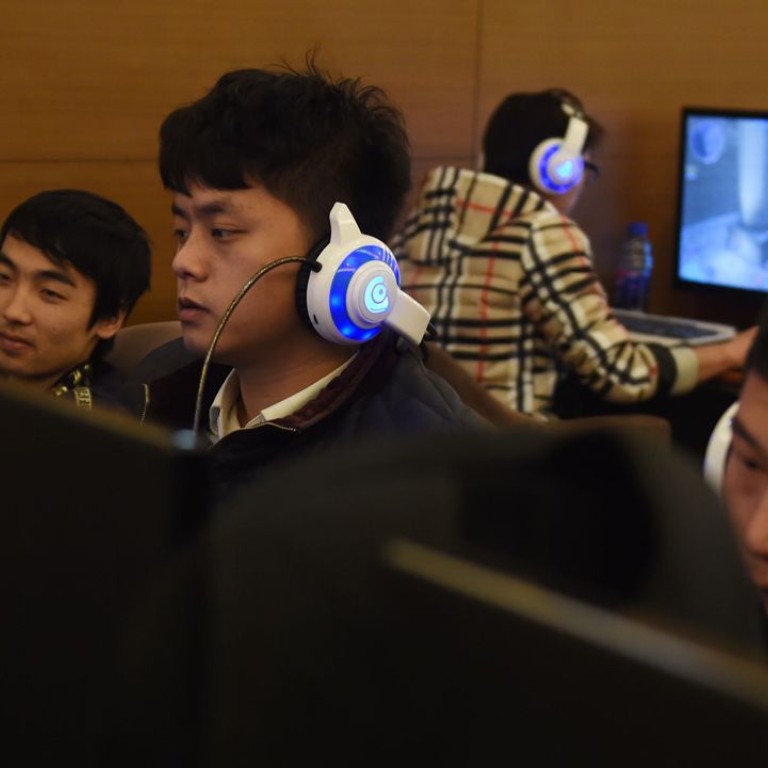
China uses velvet glove on iron fist as it goes on the offensive over internet security
Beijing has long placed strict limits on mainlanders’ online freedoms, but is now also trying to demonstrate its softer side to help win the hearts and minds of the public – at home and abroad
The World Internet Conference is taking place in China’s Zhejiang province this week at a time when Beijing is becoming increasingly assertive in the way that it controls the use of the internet on the mainland.
“Over the past few years, Beijing has gone from passive defence to active offence in its internet security,” said Qiao Mu, a communication expert at the Beijing Foreign Studies University.
“Staging the conference is a way for China to showcase the legitimacy of its internet governance.”
Internet security has become an increasingly important priority for the Communist Party over the past two years.
Read more: The world needs new rules for cyberspace, says China’s President Xi Jinping
The Central Leading Group for Internet Security and Informatisation was founded last year to oversee the issue.
Members of the group, chaired by President Xi Jinping himself, include top cadres from the State Council, the nation’s chief administrative authority, and party ideology organs.
Last July, the National People’s Congress, China’s top law-making body, published a draft of the country’s first internet security law – a move that usually ensures passage of legislation.
According to the draft, which has great emphasis on state security, law enforcement personnel will be authorised to cut access to the internet during times of social unrest. State security authorities will also have legal grounds to obtain information from telecom carriers.
“The internet involves the everyday life of many citizens and therefore it’s a problem of social stability and national security,” said Zeng Jianqiu, a professor at Beijing University of Posts and Telecommunications. “Internet security transcends ideology. It also has a lot to do with counterterrorism.”
Read more: Double standards: China’s push to develop internet for economic gain tempered by strict censorship
Beijing has expanded the realms of internet security beyond simply fighting the illegal collection of personal information online, internet fraud and the use of the internet for terrorism.
In a nationwide crackdown on online rumours launched in the summer of 2013, hundreds of internet users were punished and some detained for disseminating “rumours” on the internet, according to the Southern Weekly.
Several influential online bloggers were convicted on various charges, including “picking quarrels and provoking trouble”, which effectively silenced others.
“Judging by the present situation, I think we should attach great importance to speeches on the internet in our propaganda work,” Xi said during the crackdown in August 2013, according to the social media account of the People’s Daily’s overseas edition.
“[We] must grasp the initiative in the area of speeches and not be marginalised.”

He said: “Internet security affects state security and social stability. It’s a new challenge we are facing.”
Last month, Huang Kunming, the party’s deputy propaganda chief, went as far as to use the word “battlefield” to describe the ideological struggle faced over internet security, when he wrote an article in the People’s Daily calling on the authorities to “strengthen the building of the online battlefield of thoughts and culture”.
Qiao said: “Internet security carries a different meaning in China. It’s mainly a problem of political security. Most of the measures Beijing have taken are because of political considerations, including the fear of the impact of things such as the Arab Spring [uprisings from 2010 against governments in many Middle East countries].”
Beijing has also taken steps to improve its image on the internet.
Over the past two years the State Council has repeatedly filed directives urging government departments to open social media accounts and criticised “zombie accounts” that have not been maintained an updated.
Party newspapers have also adopted softer, more casual language in their propaganda, for instance, referring to Xi and his wife, Peng Liyuan, as “Father Xi and Mother Peng”. These affectionate terms, combined with the couple’s seemingly casual personal style and the emphasis of the media on Peng’s fashion sense, have gained popularity among the public.
“These are effective tactics for the time being,” Qiao said. “More benevolent methods were adopted, and communication with netizens was encouraged. But the government’s strict control over the internet on the mainland is certainly unsustainable.
“It’s like a blockade, which is preventing prosperity of the internet industry, China’s integration into the mainstream culture of the world and also the obtaining of knowledge. We can’t even use Google Scholar [to search for academic research].”

